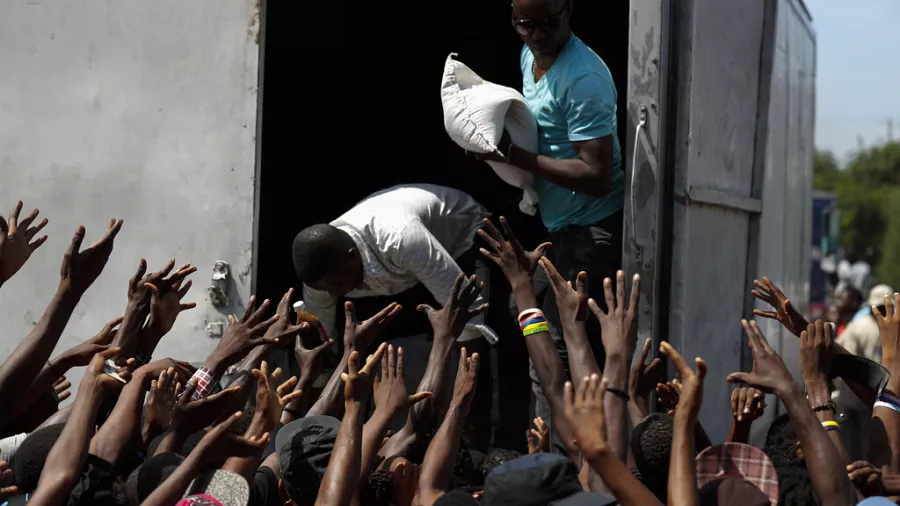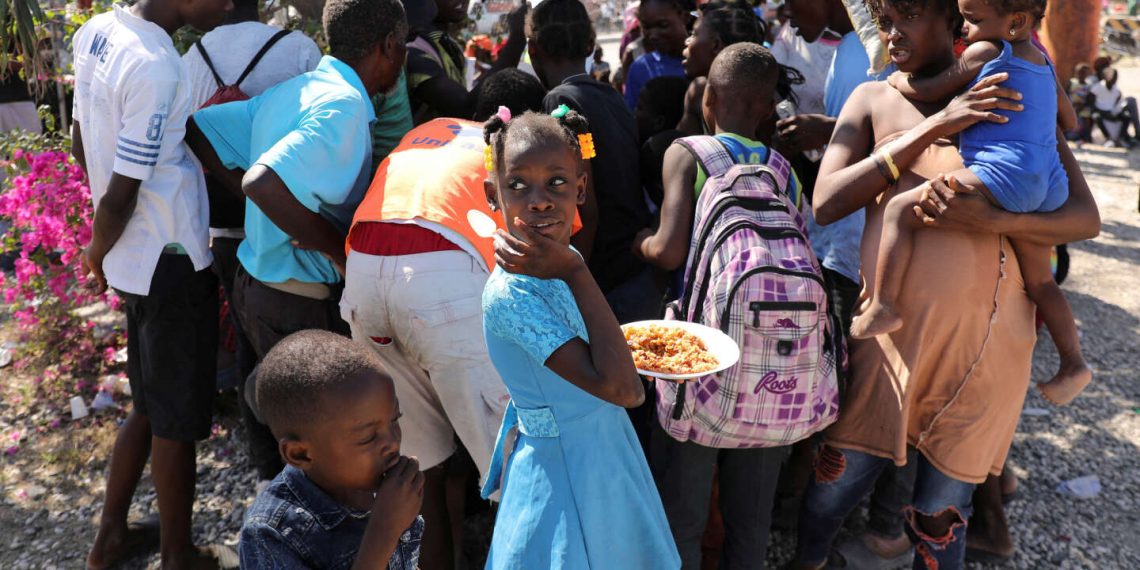Amid pervasive gang violence, Haiti grapples with a severe food crisis affecting nearly half of its population, international agencies caution. The Integrated Food Security Phase Classification reveals that about 4.97 million Haitians, out of 11.5 million, face dire levels of food insecurity, with eight regions on the brink of famine.
Gangs’ expansion from Port-au-Prince into agricultural hubs like the Artibonite Valley exacerbates the situation, disrupting farming activities and exacerbating shortages.
The violence, intensified by recent attacks on police stations and the international airport, has left thousands dead and displaced hundreds of thousands.

Prime Minister Ariel Henry’s efforts to establish a transitional council are hindered as he remains stranded abroad, unable to return due to diplomatic issues. Gangs now control much of the capital, rendering daily tasks impossible and essential services inaccessible.
The World Food Programme reports that Haiti is experiencing its worst food insecurity levels on record, with many resorting to drastic measures amid dwindling resources.
Only a fraction of the population has received humanitarian aid, highlighting severe underfunding of relief efforts. Meanwhile, over 30,000 people have fled the capital in recent weeks, seeking refuge from violence and scarcity.

The neighboring Dominican Republic’s refusal to support the U.N.’s aid air bridge further complicates relief operations. Laurent Uwumuremyi, of Mercy Corps, emphasizes the urgency of addressing the crisis to prevent Port-au-Prince from succumbing to overwhelming turmoil.
Even previously secure areas like Petion-Ville are now barricaded, signaling the pervasive impact of the crisis. Haiti’s plight underscores the urgent need for international intervention to alleviate suffering and prevent a humanitarian catastrophe.




